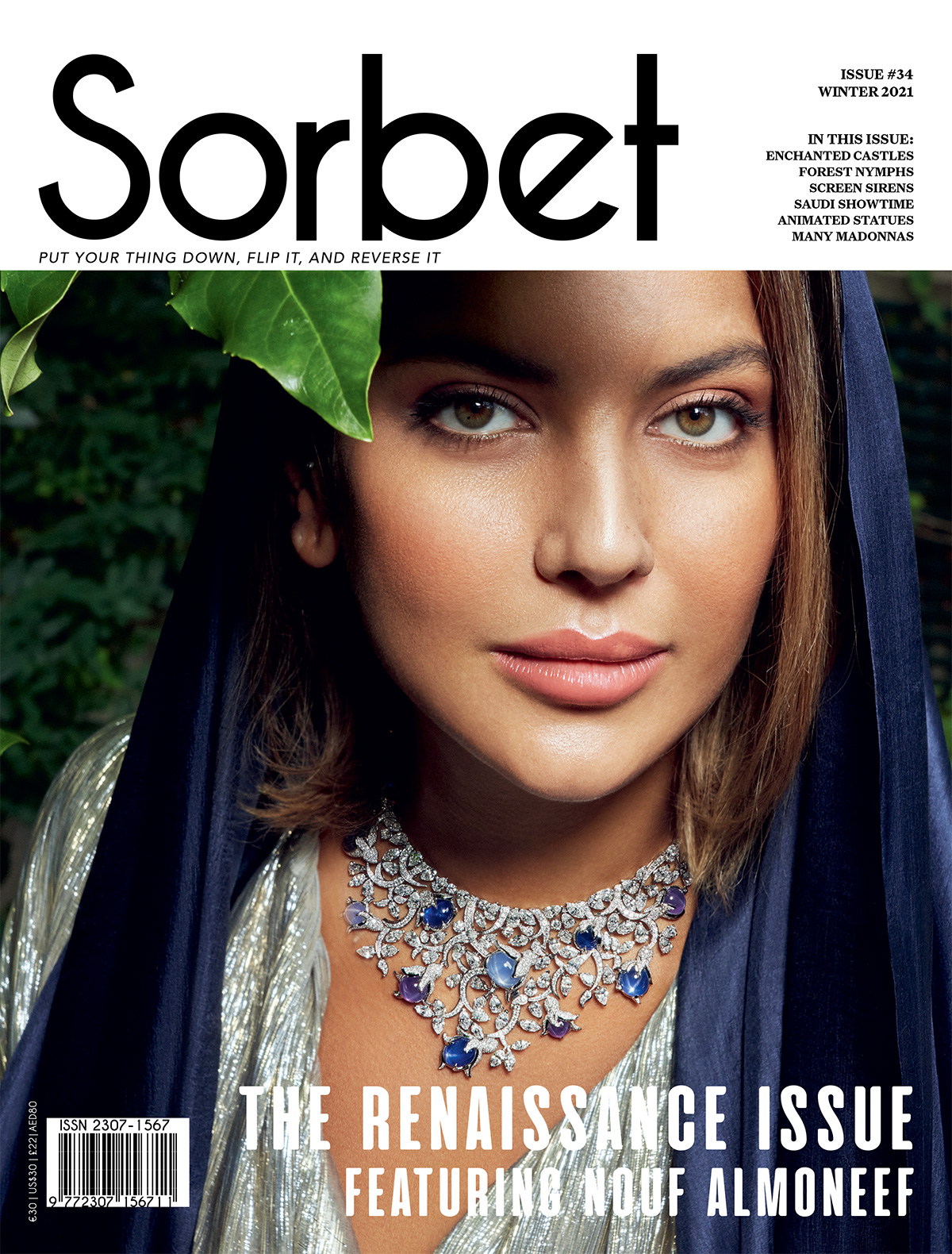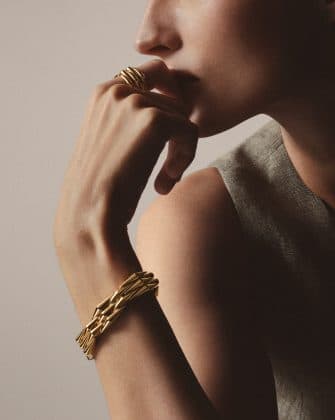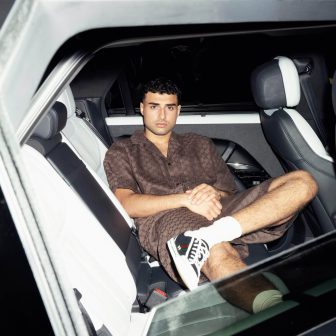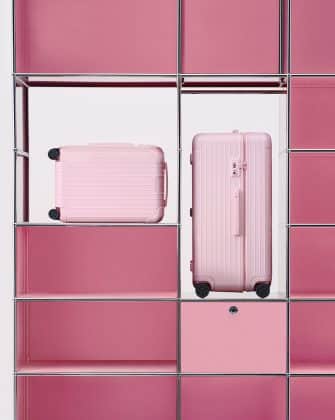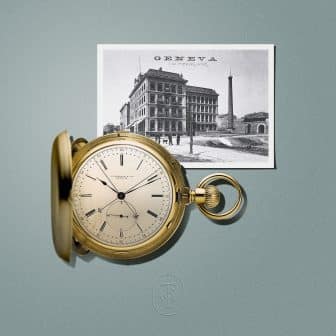ZEYNE IS THE VOICE YOU CAN’T IGNORE – BRINGING SOUL AND ARAB IDENTITY TO POP’S FRONTLINE
Written By: William Buckley
Palestinian-Jordanian singer-songwriter Zeyne is serving up another digital cover for our MIX ISSUE, bringing soul, heritage, and bold identity to the spotlight. With a voice that cuts deep and lyrics that hit close to home, Zeyne is redefining the rules of Arabic pop, one verse at a time.
WILLIAM BUCKLEY: Zeyne, where are you?
ZEYNE: I’m in Amman, Jordan.
WB: Oh, you’re still in Jordan?
ZEYNE: Yes, I didn’t leave. I try to spend Ramadan in Jordan with my family. I like to take this time to recharge. And in April, it just gets so hectic. So I’m just trying to feel myself mentally and physically.
WB: Is it warmer than it was on our shoot day?
ZEYNE: So much warmer.
WB: So you’re in Jordan over Eid, then in April, hitting the road running?
ZEYNE: Yes, literally the second day of Eid, [my tour] will come full force.
WB: What was the cover I just saw that was really great? Was it Grazia? I loved it.
ZEYNE: Thank you. It was Grazia.
WB: Mashallah.
ZEYNE: Oh, thank you. Yeah, it was a cool one. It was a bit different from what I do, but it was cool.
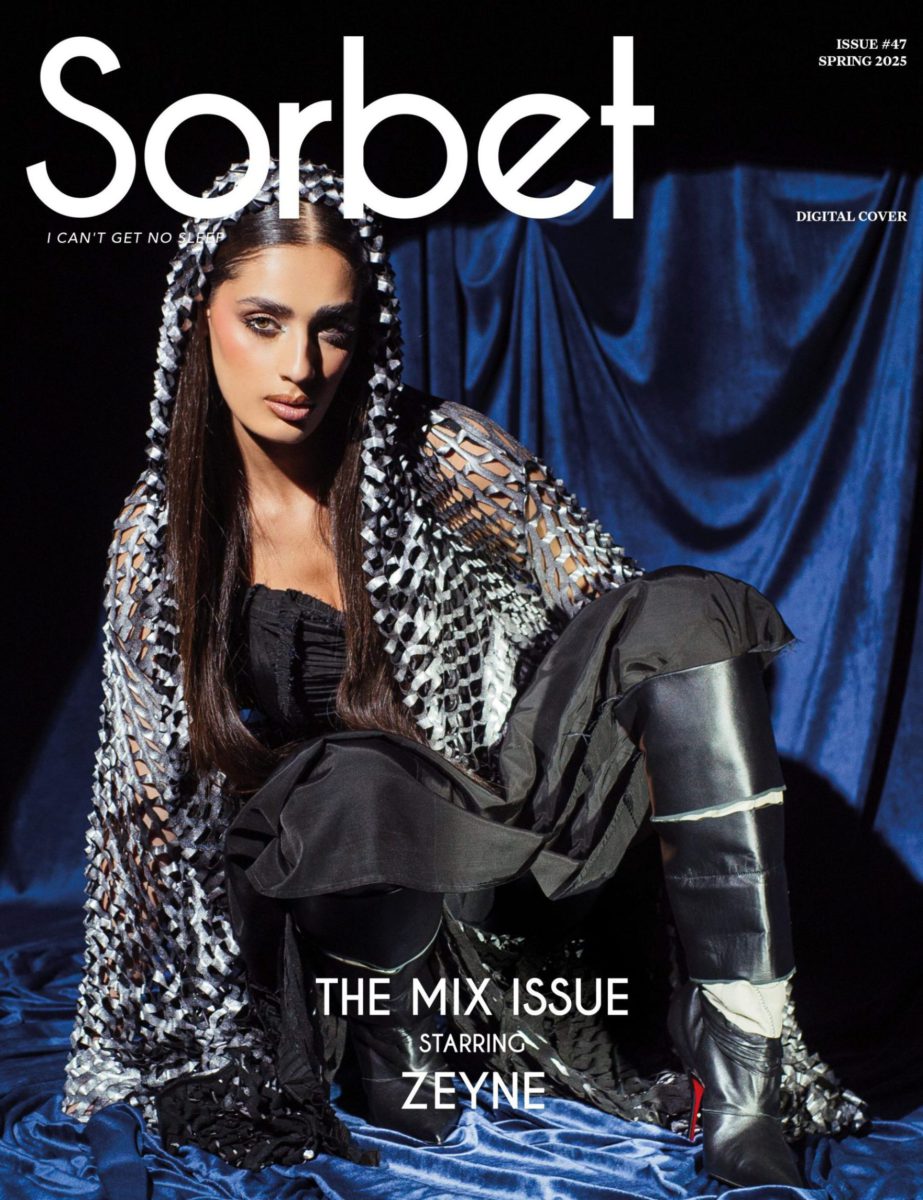
Sorbet Magazine | Digital Cover
Xrismarteen high heel boots, Christian Louboutin x Maison Margiela
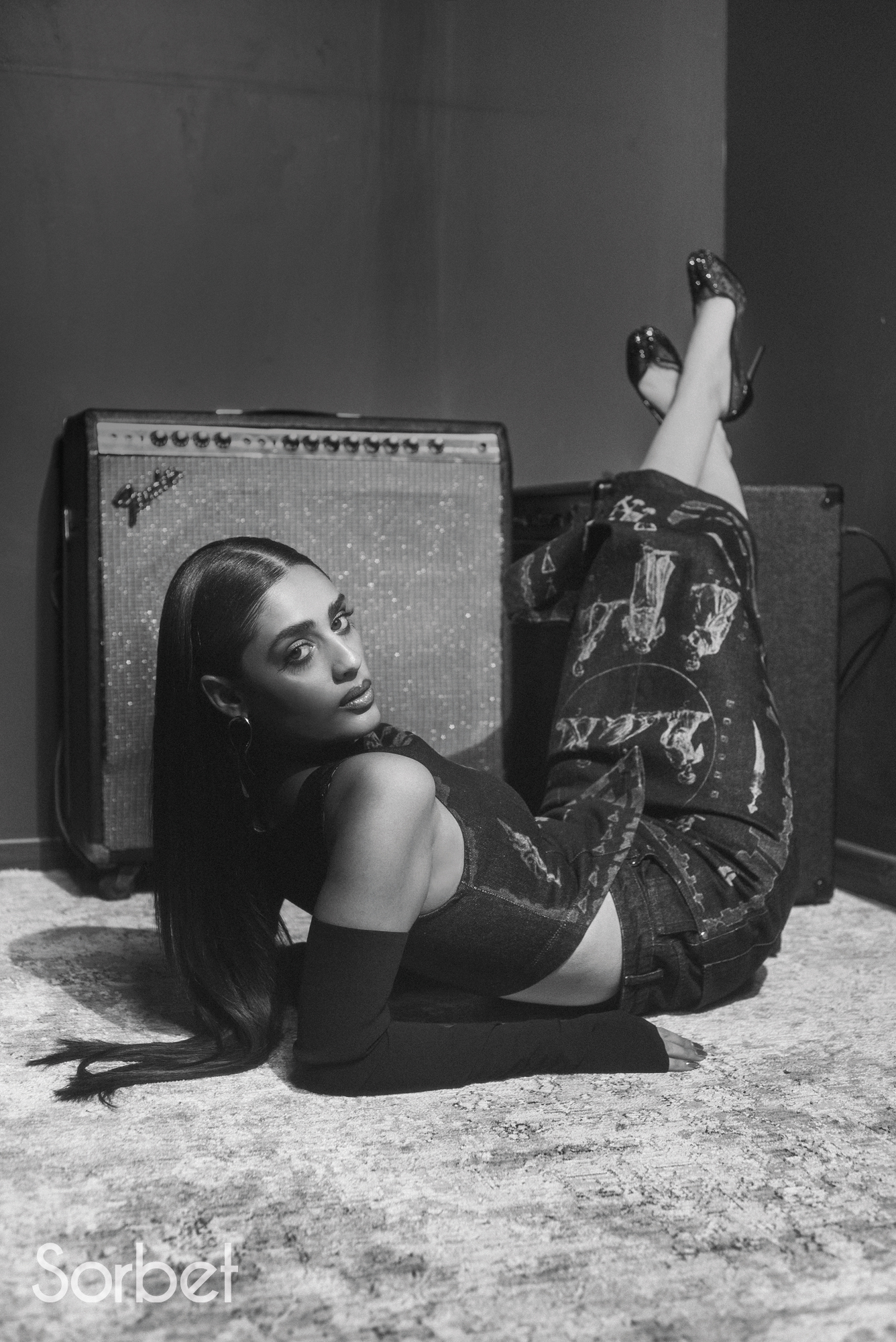
Sorbet Magazine
Dress, Zeid Hijazi; Bridiela Una Strass pump in black, Christian Louboutin x Maison Margiela
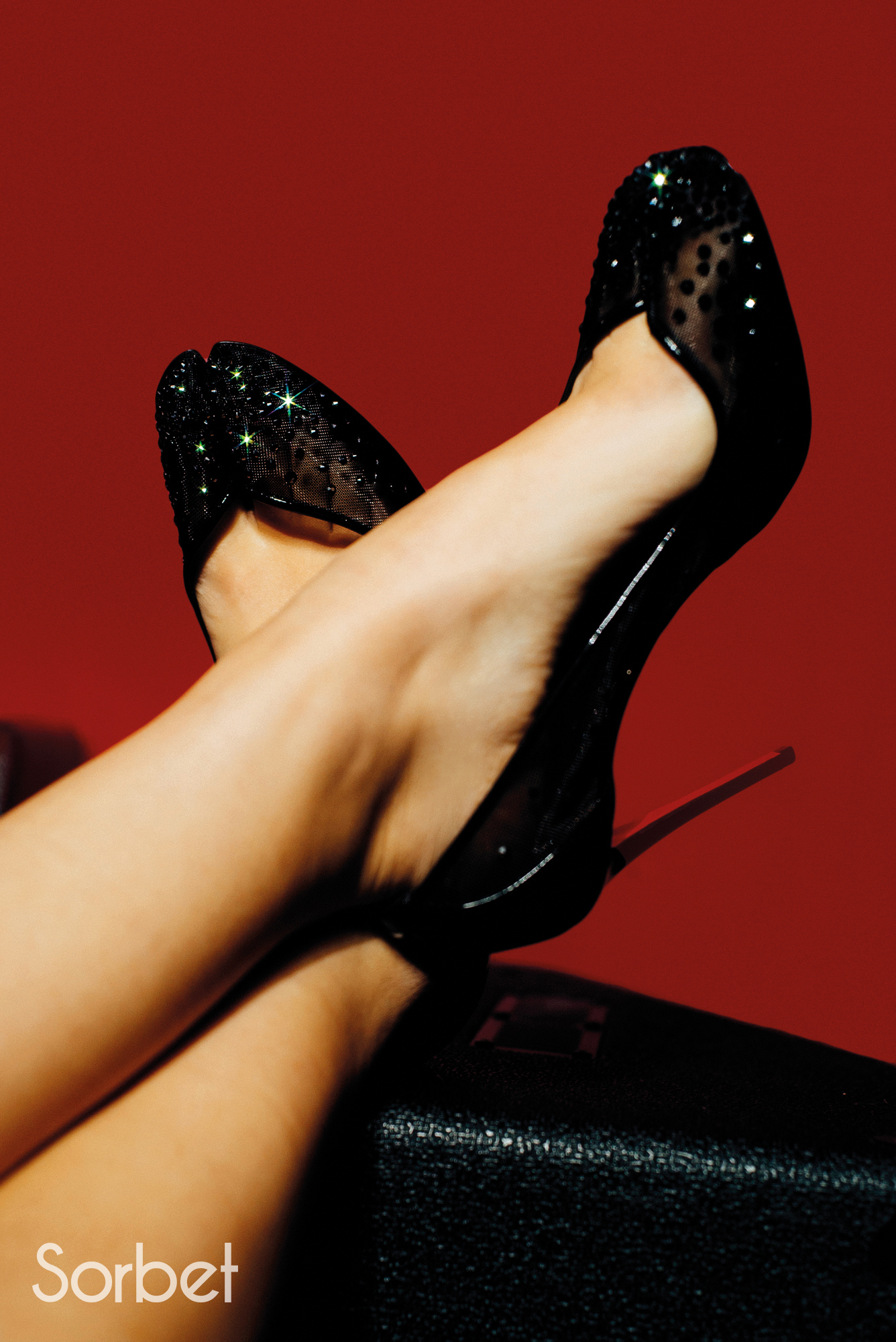
Sorbet Magazine
Bridiela Una Strass pump in black, Christian Louboutin x Maison Margiela
WB: Okay, so let’s start at the beginning. How did this journey start – when did you realize that you could sing, that you wanted to sing, and how did that manifest into where you are now?
ZEYNE: I think it started way back when I was just a few years old. I’m the youngest of four siblings. My eldest sister would play the piano all the time, and she was so good at it. We’re 12 years apart, and I would just look at her, fascinated with how fast she would move her fingers, how well she could play. And I remember, at around three years old, telling my mom that I wanted to play like her.
So when I was six, my mom enrolled me in piano classes; I was in the first grade. And then when I was nine, I started vocal lessons. I think my mom discovered I had a nice voice at a school assembly she attended, and she was just like, ‘Oh!’. The teacher came up to her and said, ‘Zeyne has a really nice voice. You should encourage her to sing more.’ And that’s how I started.
My mom would actually sing around the house as well. She has a nice voice, her mother has a nice voice, and I feel like I got my voice from them. Over the years, I just continued with classes and lessons, but I kind of stopped singing and playing the piano when I went to uni. I studied in Brighton.
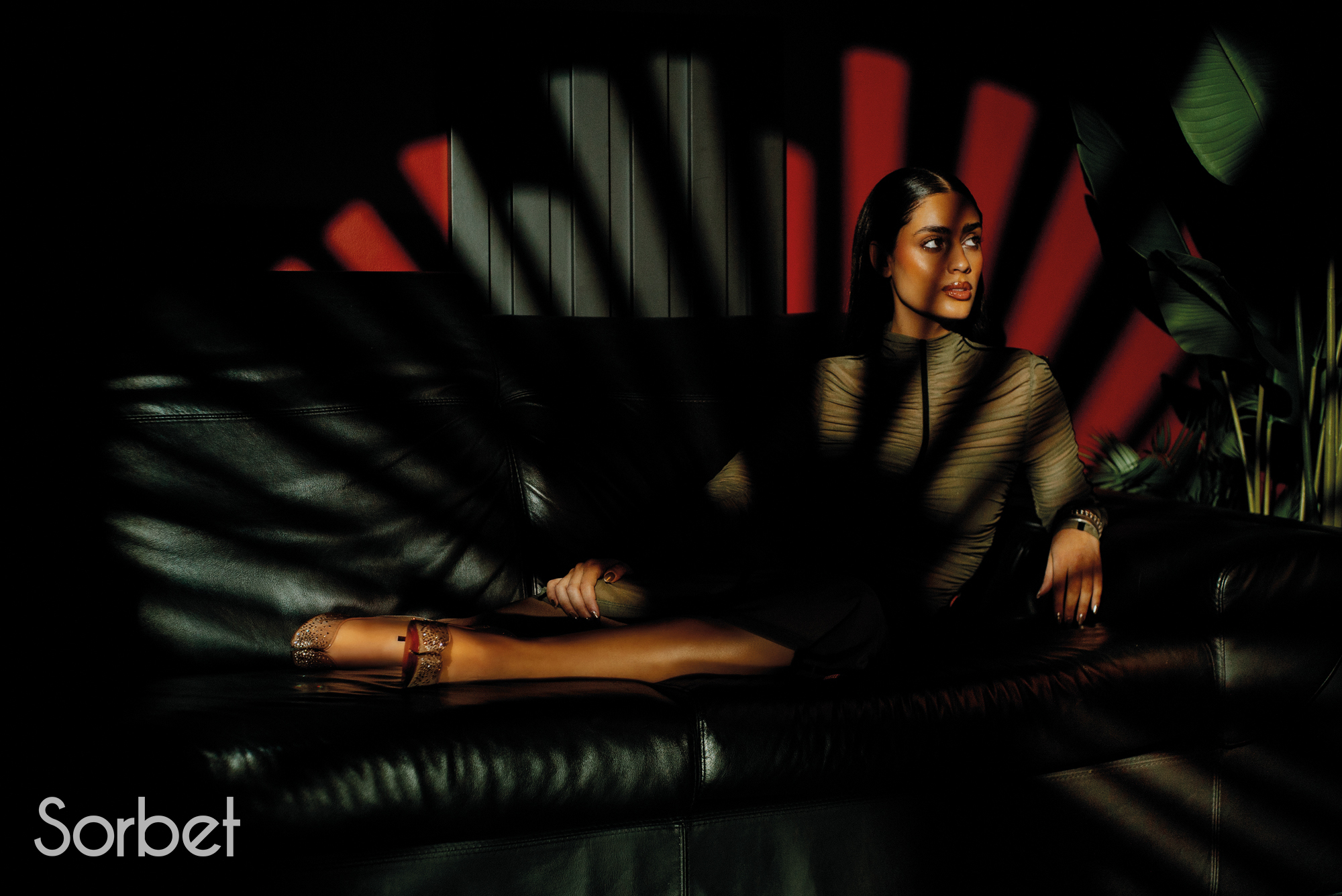
Sorbet Magazine
Dress, Diesel; Bridiela Una Strass pump, Christian Louboutin x Maison Margiela
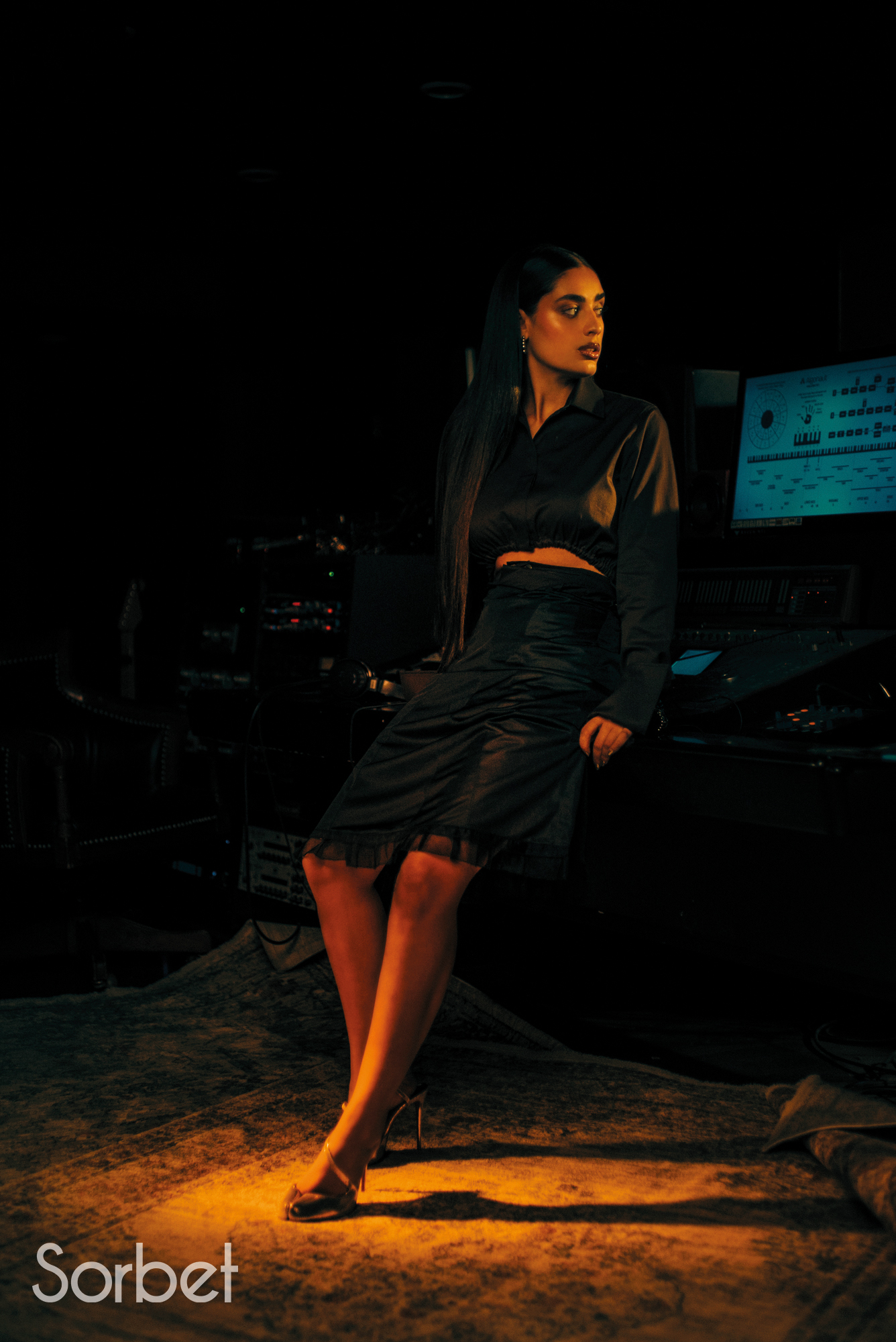
Sorbet Magazine
Bridiela Una Strass pump, Christian Louboutin x Maison Margiela
WB: Oh, wow. I almost went to Sussex.
ZEYNE: I went to Sussex.
WB: No way! I so nearly went there. It was between Sussex and Oxford Brookes. I had two friends going to Oxford Brookes, so even though Sussex was a much better university, I wanted to be with my friends.
ZEYNE: Sussex is so beautiful, and the campus is just one of my faves. Brighton as a city is just amazing – I love it so much. I spent three years there. Then I moved to London to do an internship in PR.
And when I was about to move to London for good – I just had to renew my visa and papers and everything – Covid hit, and I got stuck back in Amman. I lost my job offer in London because they were laying people off, as they couldn’t afford them anymore.
So I started an Instagram page, just posting covers, because I was so bored. I wanted to build my confidence to sing in front of people more. Up until that point, I wasn’t really singing in front of people, it was just something I did for myself.
Then people started following me. When I started singing in Arabic, people were saying, ‘Oh my God, post more!’ And I was just like, ‘What?’ Four years later, here we are.
WB: It’s incredible. Tell me about those four years. From your mom thinking you should get singing lessons then going to university and towards a career in PR – was singing always just a talent to have, was there a dream to pursue it?
ZEYNE: I’ve always had the dream of going into the arts. Ever since I was really young, the arts made me feel something I wouldn’t feel with anything else. Just going to the theater, watching dance, watching an orchestra, watching a concert – it was something that ignited a passion in me. I thought, ‘I want to do this’.
But I think I wasn’t confident enough to believe in myself, to actually pursue it from a very young age and have my eyes set on it. I always doubted myself. I thought, ‘No, it’s so unattainable’, especially in this region – the infrastructure for the music industry and scene only really began to boom in the past few years. Before that, it was kind of dead. And especially for female artists, it wasn’t really a big thing.
I’m specifically referring to Jordan, not Egypt or Lebanon. It was more focused on alternative indie bands that were more male-dominated. It was definitely a male-dominated industry.
Now, though, I feel it’s slowly starting to balance out, which is a beautiful thing. Hopefully, we’ll see more and more female artists emerging from Jordan and Palestine. But back then, it wasn’t a thing. I feel like now we’re making it happen.
WB: Because the world’s smaller now and the region is more connected.
ZEYNE: 1000%. The region is so much more connected. That’s how I started, by connecting with people online.
WB: Where are your fans mostly from?
ZEYNE: Back then, it was mostly my circle: Jordan, a bit of Egypt, a bit of the US. I used to have a lot of Arabs in the diaspora from the US following me. Now it’s even more. And now, in my Spotify stats, the US is the number-one country; it’s crazy.
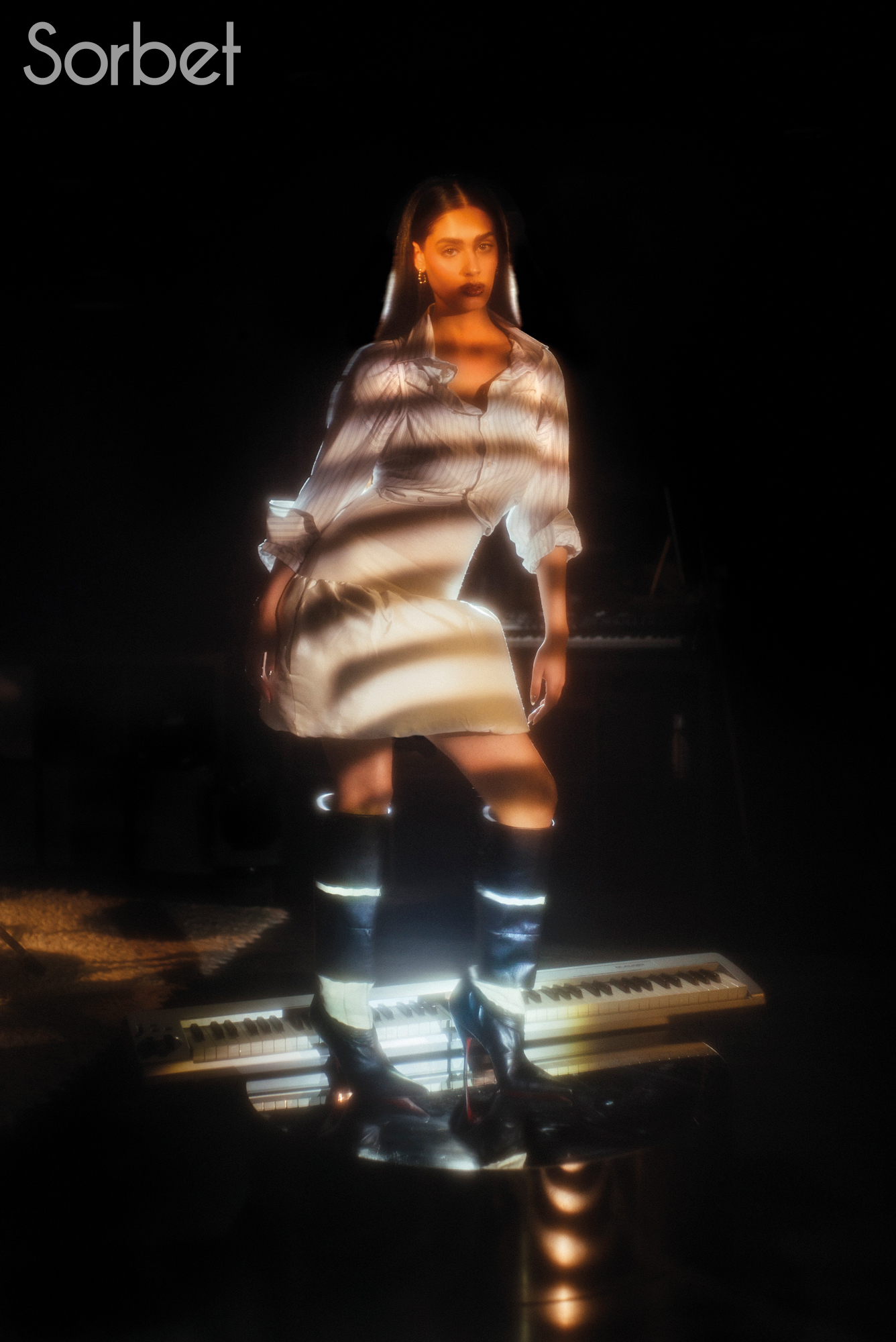
Sorbet Magazine
Xrismarteen boots, Christian Louboutin x Maison Margiela
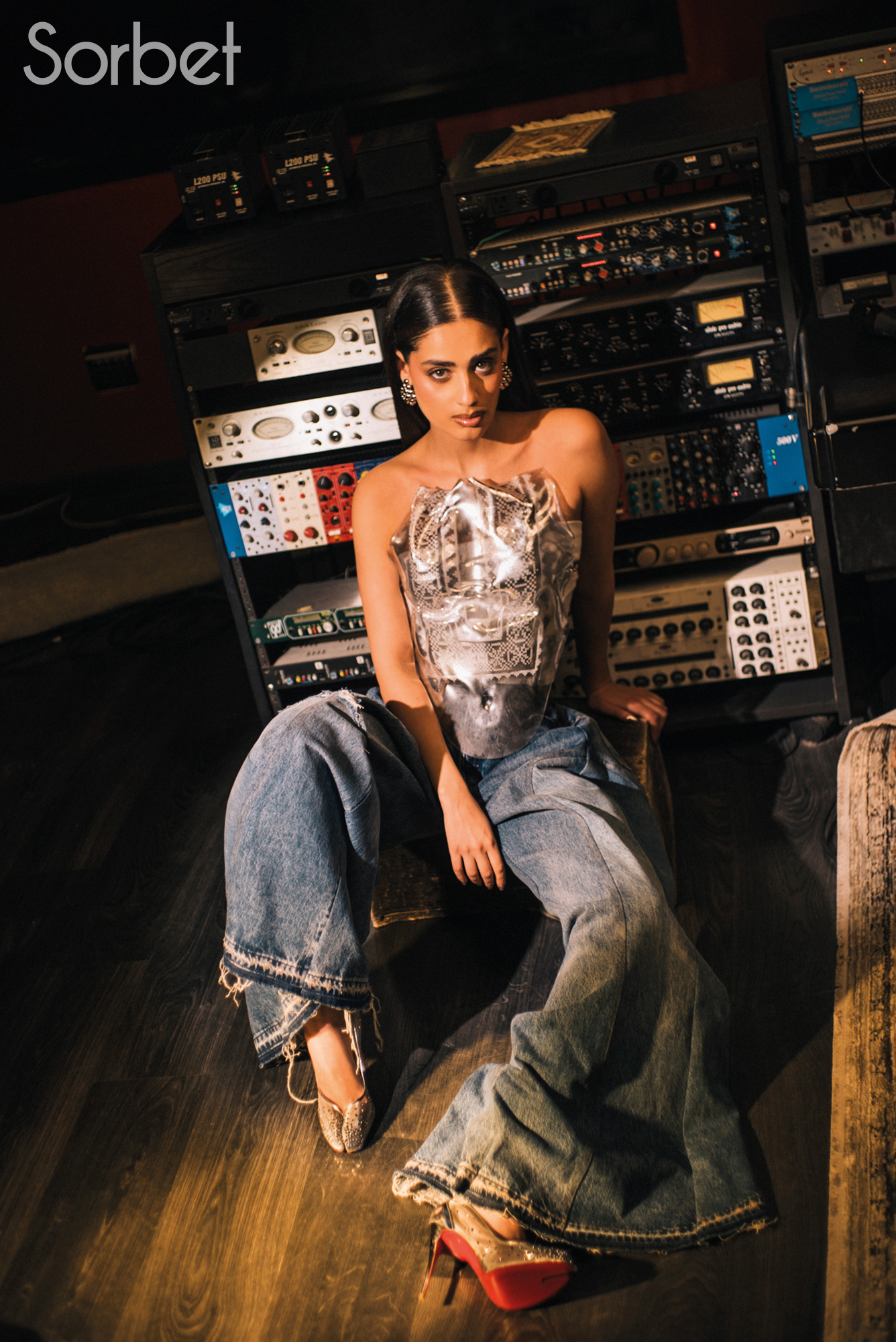
Sorbet Magazine
Bridiela Una Strass pump, Christian Louboutin x Maison Margiela
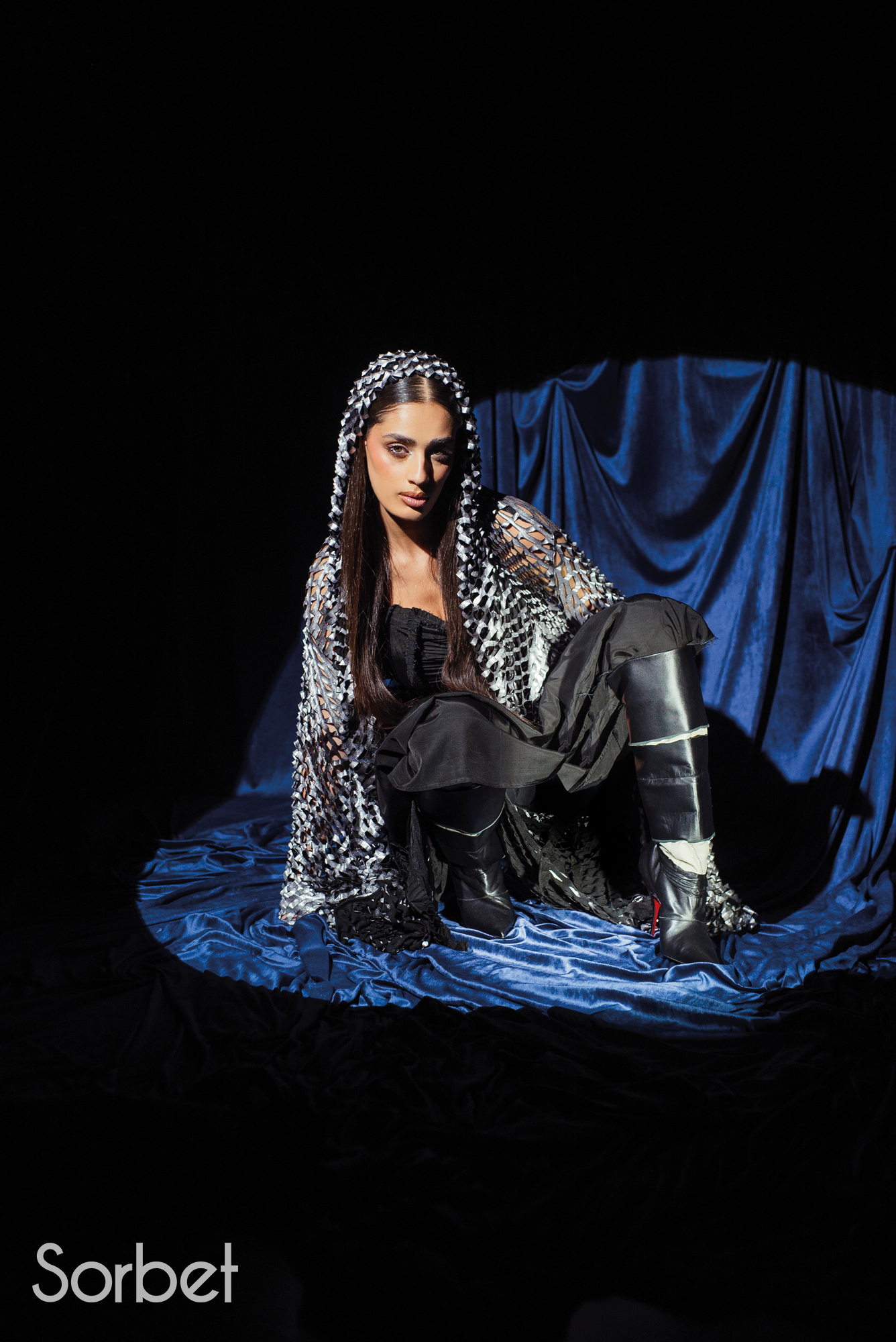
Sorbet Magazine
Xrismarteen high heel boots, Christian Louboutin x Maison Margiela
ZEYNE: Yes, I think so. I believe in divine timing. I believe that everything happens for a reason, at the exact time, place, and way that it should. So, I’m not questioning why things didn’t happen earlier. I think it had to happen now. Personally, I feel more at peace and at ease with myself.
WB: And probably becoming more proud of what you’re doing, in a way?
ZEYNE: Exactly right. Especially coming from a background where I was part of a Dabke group since I was five. Dabke is the traditional dance of the Levant, and I used to perform Palestinian Dabke growing up.
WB: Sorry, I don’t know what it is. What is that?
ZEYNE: I am sending you a reel to show you. It’s a Palestinian folkloric dance. In Saudi I performed my last song, Asli Ana, with Dabke. It’s a traditional dance from Palestine and the broader Levant area. I have been performing Dabke since I was five years old; I even have pictures from back then. My mom managed the group, my sister was on the choreography team, and my brother was in the team too. It was a whole family thing.
I did it for 16 years. But growing up, I felt like I couldn’t fully embrace it, especially at school. You know how teenagers can be, with bullies and the pressure to fit into a Westernized mindset. I felt like my strong cultural ties weren’t ‘cool’. Over time, as I accepted myself more, I realized that in a way I had been decolonizing my own mind – freeing myself from the idea that my culture made me less than others. I came to see that we are special, that our culture is rich, and that I should be proud of it. That’s when I decided to amplify it in my music career. Alhamdulillah, the response has been overwhelming – people have been so touched and emotional about it.
WB: You’re connecting with your people, essentially. From your heart to theirs; the most powerful connection possible.
ZEYNE: 1000%.
WB: Because it’s quite a big listenership, right?
ZEYNE: Yes. I’ll tell you how it goes. The top countries on Spotify are the US, France and India, which is a shock. I don’t know how I got there. Then it’s Germany, the UK and Egypt. Top cities: Cairo is first. Then Paris, London, Berlin and Dubai.
WB: Wow, so interesting.
ZEYNE: Yeah, so interesting. Amman is number 12 or something, which is so funny. It doesn’t mean people don’t listen to me here, it’s just that I guess I have more of an appeal outside of Jordan.
WB: Tell me about Jordan and Palestine – the influences, the heritage. Because when you started doing covers during Covid, you moved into Arabic music later. And now, your music is very much of the region. How did you come to that decision, to really tap into and embrace that? How has it influenced everything you do?
ZEYNE: My music has always been centered around storytelling; that’s how I write my music, based on my personal experiences. I always find myself writing about my own stories, love stories, breakups, identity, grief, mental health – all of these themes I gravitate towards. But over the years, I found myself leaning more and more into my identity. I think it was about a year and a half ago when I decided to unapologetically embrace who I am as a Palestinian-Jordanian woman living in Jordan with a global audience, wanting to show my identity to everyone else.
I think that decision was the best decision I’ve ever made. I’m not even kidding, because it really does distinguish you from other people. Your identity, when you think about it, is what makes you unique, it’s what makes you special. It’s how people know how to tell the difference between this artist and that artist, or this person and that person. It’s who you are, what makes you, you. So I think just embracing that and being so unapologetic about it was something I maybe should have done a long time ago, but maybe I wasn’t ready.
WB: Maybe the world wasn’t ready.
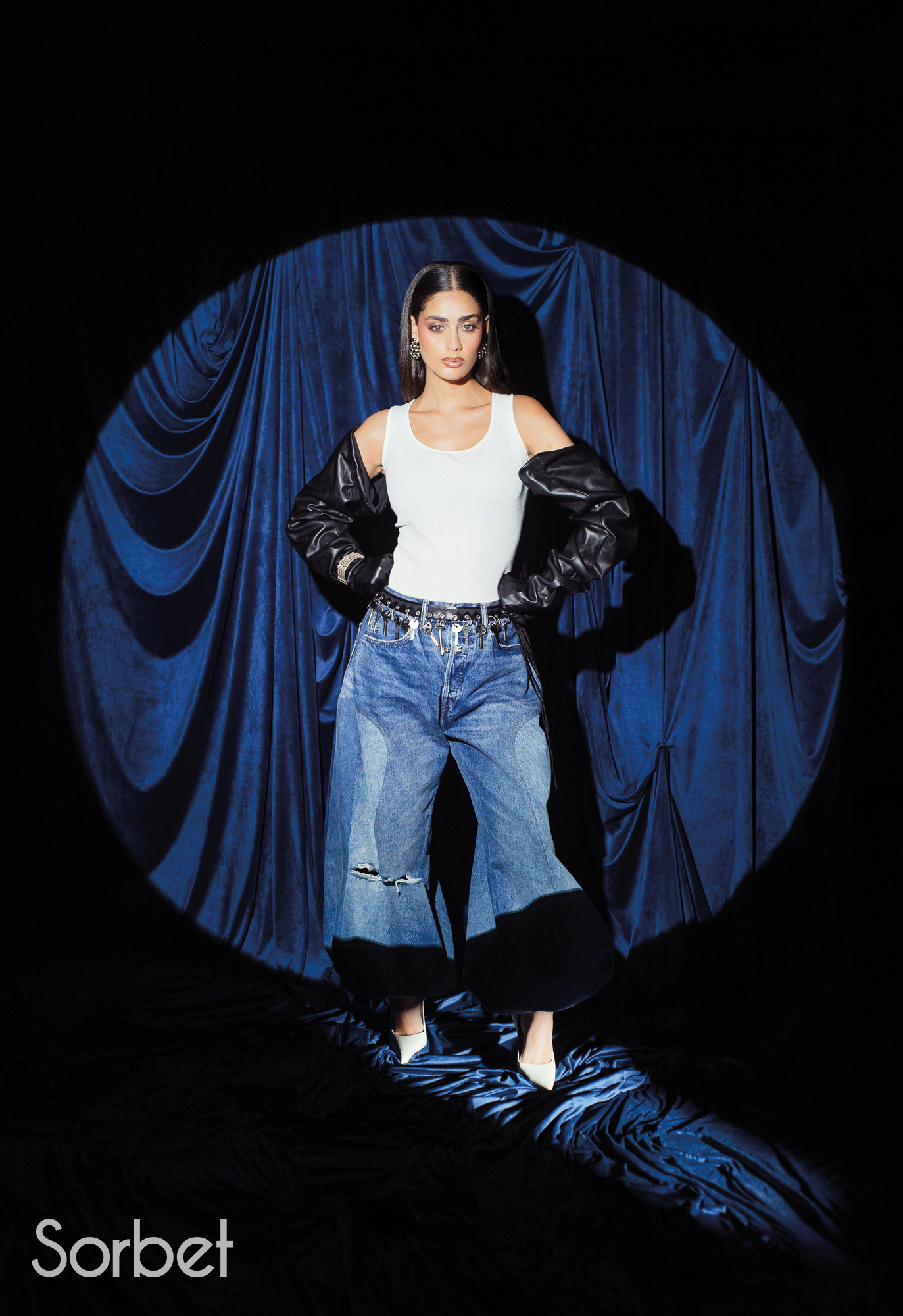
Sorbet Magazine
Jeans and gloves, MRS. KEEPA; belts, Fara Hourani x Asli Ana; Martoubi 25 pump in white, Christian Louboutin x Maison Margiela
WB: Tell me about your music. Pop music in the region 10-20 years ago was very different from what’s emerging now. With globalization, streaming platforms, and access to so many different sounds – reggaeton, Afro beats – how would you describe your sound and your influences?
ZEYNE: When I started making music, I was heavily influenced by R&B. I have been listening to R&B my whole life.
WB: Are we talking ’90s, 2000s?
ZEYNE: Yeah, going all the way back to Lauryn Hill, D’Angelo, Alicia Keys, all of these people; I used to listen to them non-stop. A lot of these songs were ones that I could play on the piano, so I would learn how to play them and sing along. I love the R&B era and how everything was formed. So, I think when I started making music it was inspired by R&B, but at the same time, it was also inspired by the Lebanese icon Fairuz and her brothers, the Rahbani brothers, who composed for her. They’re really talented. And Mahmoud Darwish, the Palestinian poet. I’ve always been inspired by his poetry, and even more so now, I find myself pulling a lot of things from his poetry, writing about it, and being inspired by it. It’s so beautiful.
As I evolved, I started experimenting, blending Afro-R&B with Arabic sounds. When I released Bali last June, I hadn’t dropped music in a while, simply because I couldn’t make music with everything that was going on in Palestine, and it’s still going on in Palestine.
I was very affected by it. Bali felt like Arabic R&B. But over the last couple of years, I’ve been more inspired by artists who weave their culture into their music in a cool way that feels global yet authentic. For example, Rosalía took flamenco music and modernized it while keeping it true to its roots; she didn’t whitewash it, she globalized it. I admire how she made it accessible to people outside of Spain without compromising its authenticity.
That’s what I’m trying to do with my debut album, which is coming out very soon, which I am really excited about.
WB: Tell me about that. When did you decide it was the right time to release it? What do you want it to sound like? Give me the tea.
ZEYNE: I’ve always wanted to make an album, but as an independent artist, it was financially challenging.
WB: You mean in terms of studio time?
ZEYNE: Yes, and good producers aren’t cheap, and I didn’t want to compromise on quality. Thankfully, last year, I got signed to a label, and part of my deal is delivering this album. It still feels surreal. It became my life and when I talk about it, I am like ‘Oh my God, the album’. The album is something I’ve been wanting to work on for a while. It’s, again, centered around storytelling. It definitely weaves my culture and my identity into it, but it has a few twists and turns. It’s very new, very modern, in terms of sound selection and even the topics we’re talking about.
The way we’re approaching it, in my opinion, is something that hasn’t really been explored in our region. So I’m really excited to see how it’s received. For example, hearing bossa nova in Arabic, hearing Egyptian-sounding rhythms and beats, but in a way that’s never been heard before. Palestinian folklore is definitely present, which is very obvious. I have a couple of interesting features that I can’t disclose, but they really excite me. My next single will be released after Ramadan, so I’m really excited about that. It’s one of my favorite songs on the album. I can’t say much more.
WB: I get it. It’s very exciting. You grew up listening to R&B, which can be hyper- sexualized or anti-establishment, but in the Middle East, there are more conservative expectations. How do you navigate that?
ZEYNE: That’s a very interesting question, and I feel like we live in a day and age where everything is online, and I’ve been hearing so much music ever since I was young. You’re right, some of it is overly sexualized, anti- establishment, and all of that. And a lot of it doesn’t necessarily suit what we’re used to here in the Middle East, in terms of modesty and everything.
First of all, I believe in ‘to each their own.’ I believe that whatever suits you as a person, you should do. I don’t believe that we should all be tied to one thing or be part of some very systematic way of doing things. But, I’m talking about myself personally. I’ve always been the type of person who has very strong values and morals, and I have certain things I stand for.
I cannot stress enough how much today’s generation, especially Gen Z, really cares about people with morals and values, especially when it comes to artists. When they see that someone stands for something, it doesn’t have to be about being pro-modesty or pro anything, but if the artist is also an activist or stands for something, it makes them different. This generation really honors that. It’s not like the older-school artists, like Nancy Ajram, where it felt like it was just about the music. Nowadays, artists are not just artists, they’re also activists, actors, and they stand for something. And I think that’s how cultural icons are developed. It’s not just about the music.
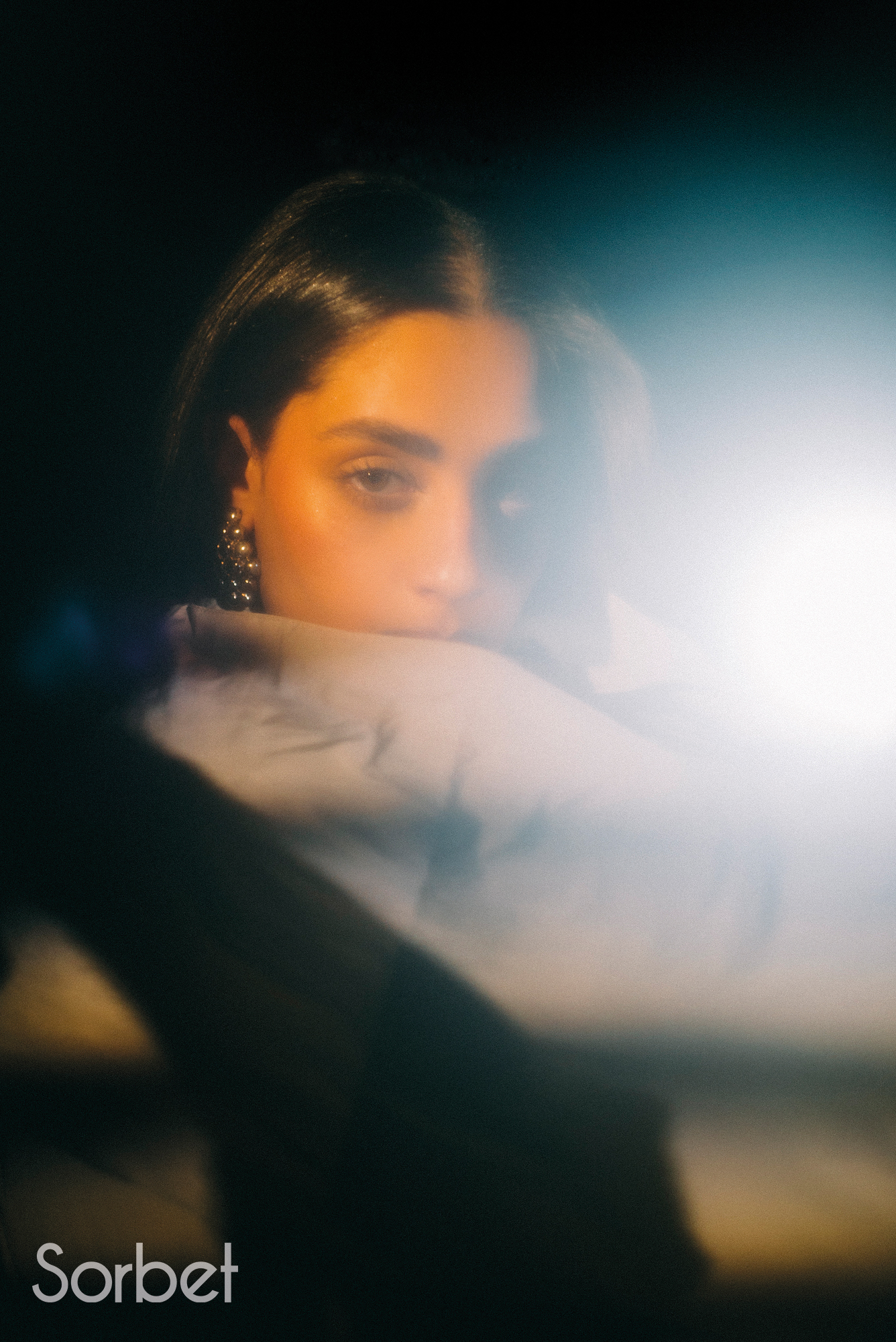
Sorbet Magazine
Coat, Nazzal Studio; earrings, D by Dalia
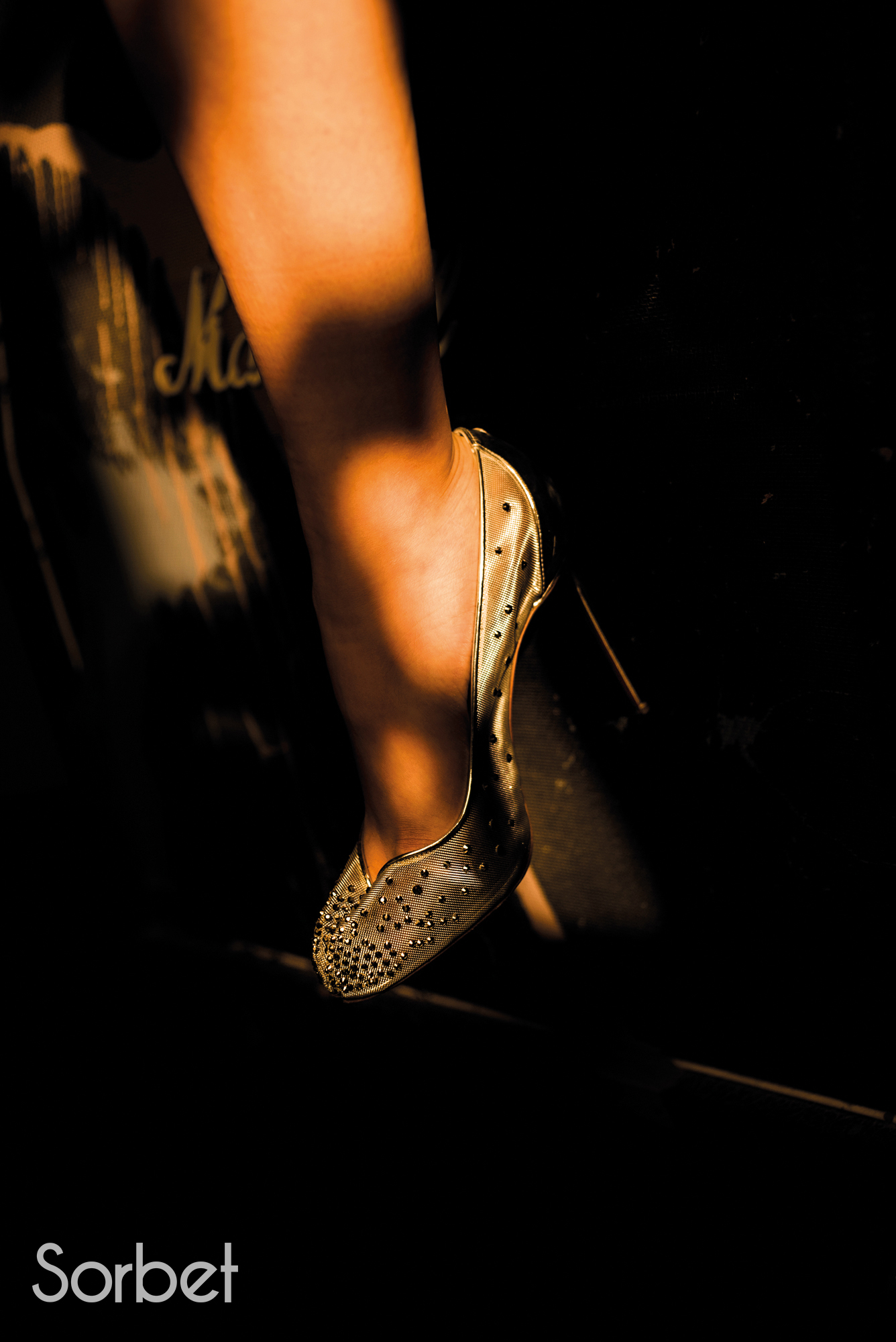
Sorbet Magazine
Bridiela Una Strass pump in beige, Christian Louboutin x Maison Margiela
WB: Madonna was really pushing the needle and standing up for all sorts of things. It’s definitely made her an icon, ultimately.
ZEYNE: Exactly. I think this new wave of artists that’s coming in right now are not just artists.
WB: Beyoncé is very politically charged.
ZEYNE: Exactly, and she cares for Black culture. Nowadays, I feel people don’t just want to follow artists for their art, like musicians and how they sing. I think we should still honor the art itself and give it the respect it deserves but I also think people want to follow others for their journeys, for what they stand for. If they feel aligned with this person’s values, then they’ll be a super fan forever, you know what I mean? I think, because of this generation, we are able to be who we are unapologetically and start building a meaningful community, not just one that listens to music.
WB: I love that answer. I’m so excited for your album. When is it dropping?
ZEYNE: Early June. But my next single comes out right after Ramadan.
WB: One last question: what’s your favorite sorbet flavor?
ZEYNE: Oh my God, mango!
Creative Concept Studio Sorbet | Photographer Mohamad Abdouni | Talent Zeyne | Creative Direction William Buckley | Styling Krishan Parmar | Production Farah Hourani | Makeup Mahmoud Ayyash | Lighting Khaleel Qubti | Styling Assistant Hakem Al-Fayez | Fashion Christian Louboutin x Maison Margiela | Location Levant Studios | City Amman
Related Photoshoot, Fashion
- Fashion
- 5 Min Read
PACKING, EN POINTE: RIMOWA INTRODUCES THE BALLERINA PINK ESSENTIAL SUITCASE
January 27, 2026

